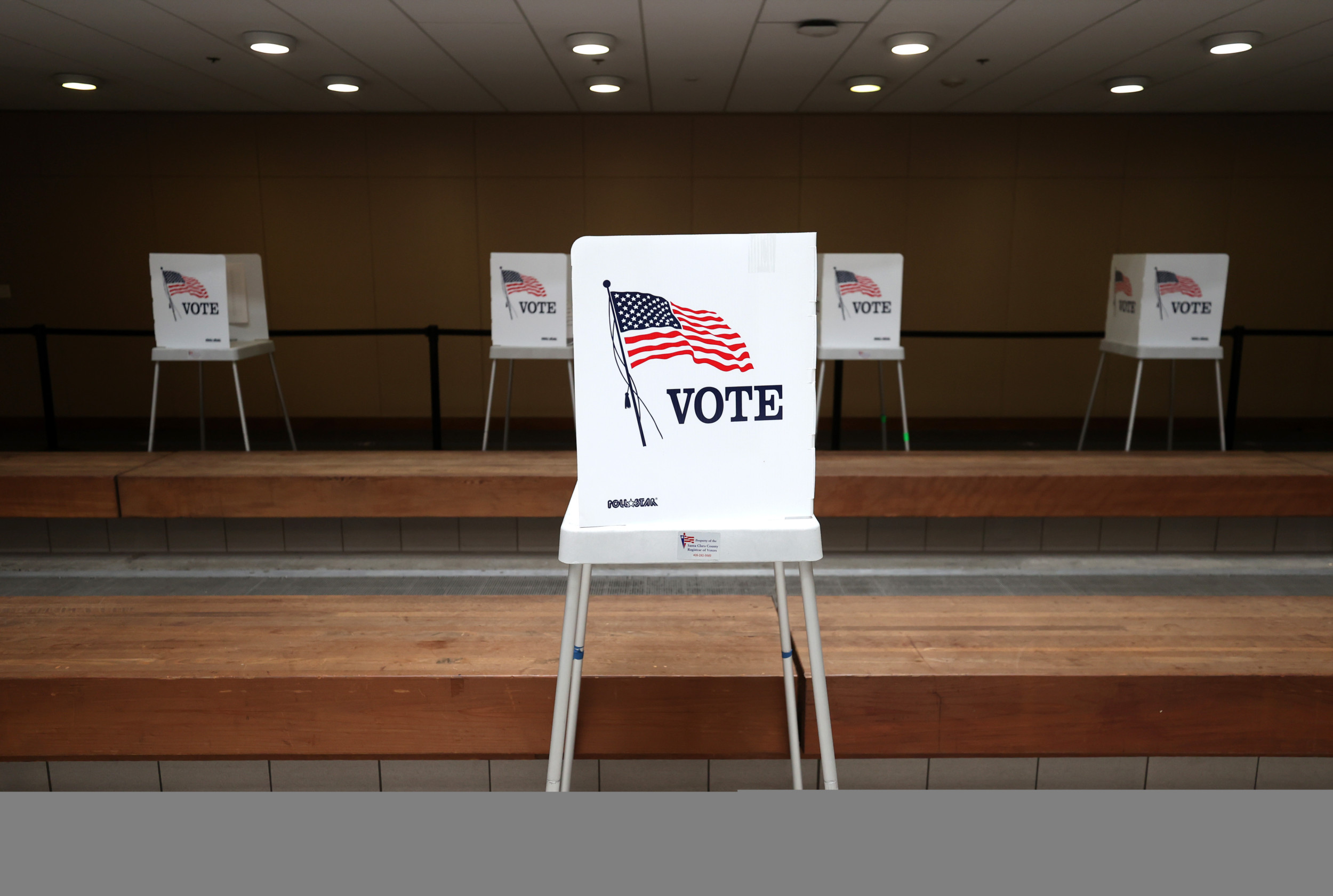
American democracy runs on a simple promise: your vote matters. But that promise means nothing if foreign adversaries can hack our systems, if bomb threats shut down polling places, or if election workers flee their posts in fear.
Right now, the infrastructure that protects this promise is at risk of collapse—threatening not just democracy, but Americans’ power to influence everything from our local schools to the economy.
Budget negotiations are now underway, and Congress has an opportunity to reverse this dangerous course before it’s too late.
Justin Sullivan/Getty Images
Pennsylvania’s frontline experience illustrates exactly what’s at stake. The state’s Republican Secretary of State Al Schmidt warned of “serious consequences” in a letter to the Department of Homeland Security.
In 2024, the Cybersecurity and Infrastructure Security Agency (CISA)—the federal agency created to protect our country’s critical infrastructure, including election systems—helped Pennsylvania election officials respond to bomb threats on Election Day, quickly debunk a Russian-manufactured fake video targeting Bucks County that claimed to show ballots being destroyed, and coordinate responses when election offices received envelopes containing suspicious white powder.
CISA was created through bipartisan legislation and overwhelmingly approved by Congress.
The agency serves as the backbone of America’s election security infrastructure, providing cybersecurity assessments, threat intelligence briefings, and physical security support. It coordinates critical information sharing between federal, state, and local officials.
Last year alone, it conducted over 700 cybersecurity assessments, 1,300 physical security assessments, and provided weekly vulnerability assessments to nearly 1,000 election officials.
These networks give local officials real-time threat intelligence and rapid response coordination.
This has never been more important.
Foreign adversaries including Russia, China, and Iran are conducting increasingly sophisticated cyberattacks against election infrastructure. In Western Pennsylvania, the Iranians hacked the Aliquippa Water Authority. Physical threats are mounting too—from bomb threats and vandalism to suspicious packages targeting election offices.
With the 2026 midterm elections approaching, now is the time to prepare. Unfortunately, the opposite is happening.
As Schmidt noted, “No state has a national or global perspective on the nature of threats and the capabilities of bad faith actors.”
Local jurisdictions lack both the funds and expertise to replace federal programs that provide global threat assessments and coordinate responses across thousands of election offices.
Yet the Trump administration has systematically gutted this security infrastructure.
CISA has been hit by funding cuts from DOGE, the elimination of partnerships with states, mission changes away from countering misinformation, and hostility from Trump himself over the agency’s affirmation of 2020 election results.
Nearly 1,000 people—one-third of CISA’s workforce—have already left the agency. Election security activities remain frozen, and funding for information sharing networks has been terminated. The Election Infrastructure Information Sharing and Analysis Center—which provided free cybersecurity services to cash-strapped communities—has been shuttered entirely.
Meanwhile, the president’s proposed budget seeks massive cuts to election funding, including an 18 percent cut to CISA’s funding and complete elimination of election security grants.
There’s strong bipartisan precedent for robust federal election security funding. The largest election security investment in recent history—$825 million—happened under President Donald Trump in 2020.
Republican and Democratic election officials across the country are now calling for restored support for election security programs.
Congress must act immediately.
First, Congress needs to restore CISA’s election security activities and rebuild the workforce of advisors who serve as critical contacts for local officials during incidents.
Second, Congress must appropriate at least $825 million in Help America Vote Act funding, matching the successful 2020 investment.
Third, Congress must include a requirement ensuring two-thirds of funds go directly to the local officials who actually run our elections.
Pennsylvania faces particular targeting as a key swing state, but every state depends on federal coordination and expertise that only agencies like CISA can provide.
States and local communities shouldn’t be abandoned and forced to face foreign adversaries and domestic threats alone. Congress has the power to restore the defenses that keep our elections secure. Our democracy has survived for nearly 250 years because each generation defended it when it mattered most.
Congressman Chris Deluzio represents Pennsylvania’s 17th congressional district.
Brian Lemek is the executive director of Defend The Vote Action Fund.
The views expressed in this article are the writers’ own.
